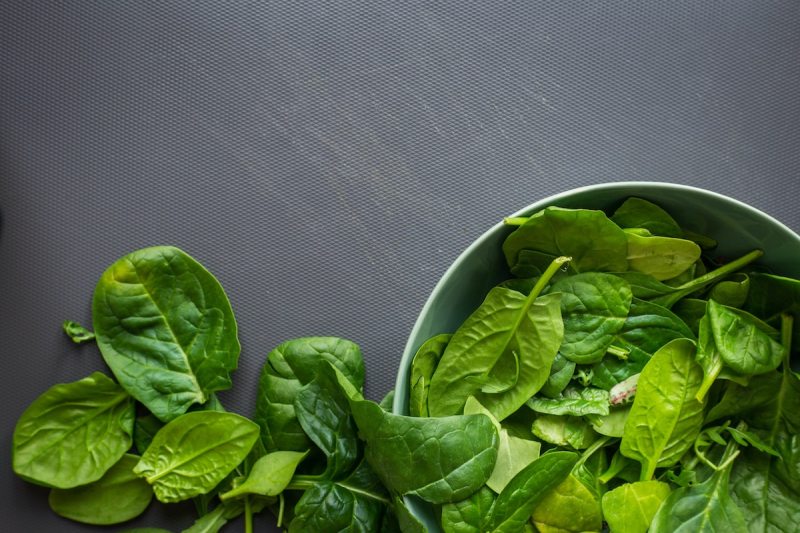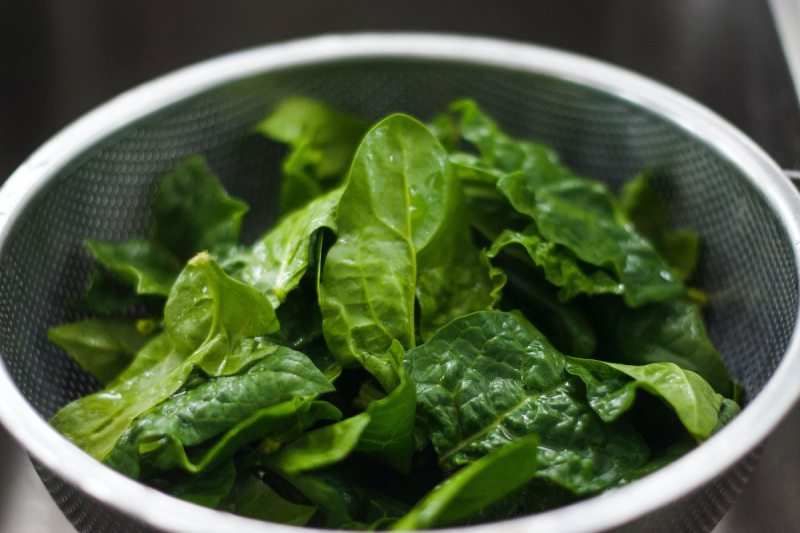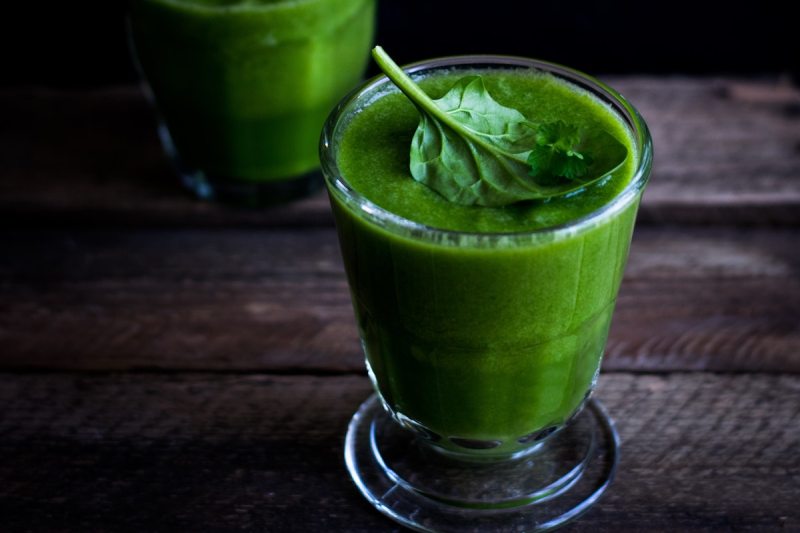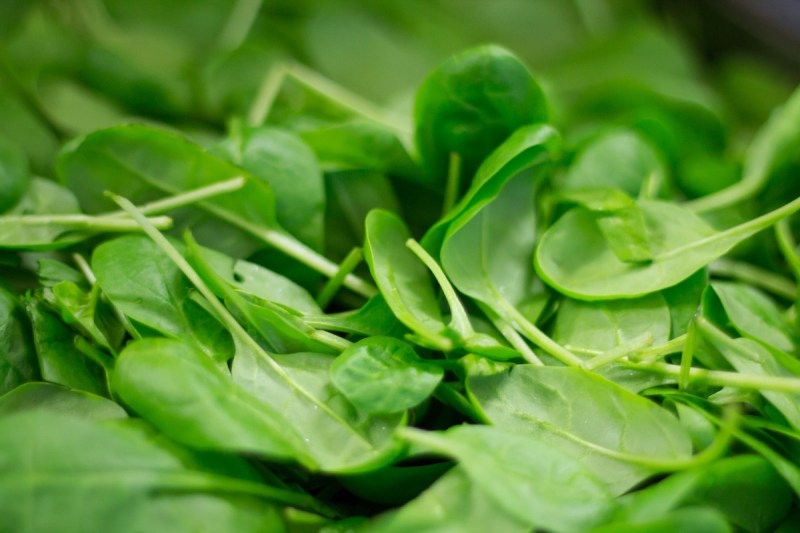
We all know that spinach is one of the healthiest foods on the planet. The superfood qualities of this dark, leafy green vegetable aren’t just reserved for fictitious heroes like Popeye the Sailor Man; we all can enjoy the health benefits of spinach by incorporating it into our diets.
Even if you’re not a salad person, there are plenty of ways to eat spinach. From steaming it and adding it to sandwiches to pureeing it in smoothies or tossing it to wilt into sauces, spinach is nearly as versatile as it is healthy. If you need some extra motivation to eat your vegetables, keep reading for a list of the many benefits of spinach.
Spinach (Spinacia oleracea) is a popular dark, leafy green vegetable used in numerous global cuisines. Perhaps since spinach originated in Persia, it is especially prominent in dishes native to the Middle East, Mediterranean, India, and Southeast Asia. Interestingly, spinach belongs to the amaranth family, so it’s related to foods like chard, beets, and quinoa.
There are a variety of benefits of spinach, which can be categorized into nutritional benefits, health benefits, and practical benefits.
Nutritional benefits of spinach
Spinach is packed with vitamins and minerals. Some of the top nutritional benefits of spinach include the following:

Spinach is low in calories
One cup of fresh spinach contains only 7 calories, making it a nutrient-dense but not calorie-dense food. Spinach can be consumed in abundance without significantly affecting your caloric intake, so it’s a great food to support healthy weight loss and weight management.
Spinach is high in protein
Spinach is surprisingly high in protein from a calorie standpoint. One cup of spinach contains 0.86 grams of protein and a 100-gram serving has nearly 3 grams.
Spinach is low in natural sugar
Sugar contains very little sugar (just 0.4 grams per 100-gram portion).
Spinach is high in fiber
The majority of the carbohydrates in spinach are fiber, which aids digestion, increases satiety, and supports your healthy gut bacteria. There are 2.2 grams of fiber in a 23-calorie serving of spinach (100 grams).
Spinach contains important vitamins
Spinach is rich in vitamins A, C, and K1. For example, according to the United States Department of Agriculture (USDA), a 100-gram serving of spinach provides over one-third of the daily value of vitamin C, an impressive 2,813 International Units (IU) of vitamin A, and over half your daily value of vitamin K1. Spinach also contains some vitamin E, vitamin B1, and vitamin B6.
Spinach is packed with essential minerals
Spinach is rich in minerals like iron, calcium, folic acid, magnesium, and potassium.
Health benefits of spinach
The excellent nutritional content of spinach confers numerous health benefits to this superfood, such as the following:

Spinach can lower blood glucose levels
One of the benefits of spinach is that it can reduce blood glucose levels and increase insulin sensitivity due to an antioxidant it contains called alpha-lipoic acid. For those with diabetes or insulin resistance, spinach has been shown to reduce the risk of oxidative damage that normally results from chronic insulin resistance.
Spinach can reduce the risk of cancer
The green pigment in spinach, called chlorophyll, has been shown to reduce the risk of cancer. It also contains compounds known as MGDG and SQDG, which can inhibit the growth of cancerous tumors.
Spinach can reduce blood pressure
Spinach is high in potassium, magnesium, and nitrates, which can reduce blood pressure. Potassium helps regulate fluid levels and counteract the effects of sodium, while nitrates help dilate blood vessels to reduce vascular resistance and increase blood flow.
Spinach can promote healthy digestion
Spinach is high in dietary fiber as well as prebiotics, the type of fiber the beneficial gut bacteria thrive off of. Fiber promotes bowel regularity and can help you feel full.
Spinach can improve eye health
Spinach is rich in vitamin A, a fat-soluble vitamin that supports vision and eye health.
Spinach is good for your hair and skin
Spinach is high in vitamins A and C, both of which support healthy skin and hair. Vitamin A plays an integral role in the regulation of oil glands in your pores and scalp, and diets high in vitamin A are linked to a lower incidence of acne and inflammatory skin conditions. Vitamin C supports collagen production and cell turnover for vibrant skin.
Spinach can improve bone health
Spinach is packed with bone-building nutrients like calcium and vitamin K1.
Spinach can reduce inflammation
Spinach is loaded with antioxidants and polyphenols, so it acts as an effective anti-inflammatory in the body. As chronic inflammation can lead to diseases such as cardiovascular disease, metabolic syndrome, certain cancers, and obesity, a diet high in anti-inflammatory foods can reduce your risk of disease.
Practical benefits of spinach

As briefly touched on, in addition to the health benefits of spinach, it’s also easy to use, versatile, relatively inexpensive, and mild in flavor. You can buy it fresh, frozen, or canned and can put it in savory or sweet dishes (yes, even in brownies or chocolate protein shakes!).
Is it more beneficial to eat spinach raw or cooked?

The answer to this question is both, as eating spinach cooked and raw has benefits and drawbacks.
Raw spinach
Raw spinach contains more vitamin C and folate, which are heat-sensitive nutrients. It is also higher in lutein, an antioxidant beneficial for eye health.
The oxalic acid content can be higher in raw spinach, which may hinder mineral absorption (iron and calcium). Our bodies may not absorb all the nutrients from raw spinach due to its cell walls.
Cooked spinach
Eating cooked spinach is easier to digest because of softened cell walls, leading to better nutrient absorption of iron and calcium. Also, the lower oxalic acid content helps improve mineral absorption. Beta-carotene, another antioxidant, becomes more bioavailable with cooking.
Cooking spinach makes it lose some vitamin C and folate because of heat sensitivity.
Since there are benefits and drawbacks to both cooked and raw, mix it up. Eat spinach both ways to benefit from the full range of nutrients.



